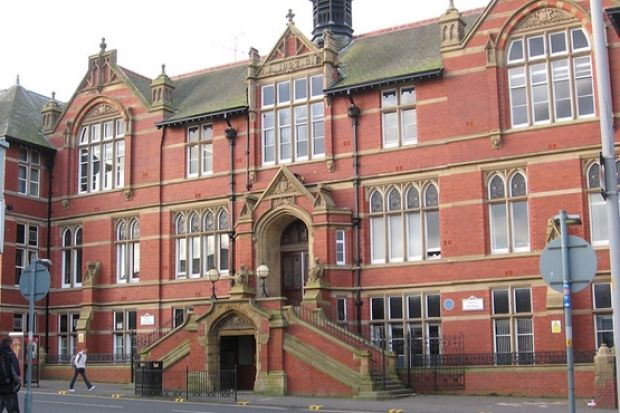Uclan said today it would not proceed with the proposals, which have been fiercely opposed by the University and College Union and Unison, “at this point in time” following “detailed discussions” with the Department for Business Innovation and Skills. However, the university said becoming a company limited by guarantee [CLG] was still its “preferred option”.
Uclan wanted to stop being a higher education corporation – the status held by the majority of post-1992 universities, reflecting their quasi-public status – to maximise its international campus ambitions.
The university had been in preliminary talks with BIS about dissolving its corporation status and transferring its assets and liabilities to a new company. Uclan has made clear that the major sticking point was “transferability of pension schemes”, which would be the major cost involved in the switch to company status.
Malcolm McVicar, the Uclan vice-chancellor, said: “While we are confident that the move would be positive for the university as an organisation, allowing us to be suitably agile to make the most of our international ambitions, we still have some concerns around the impact on staff terms and conditions, including pensions.
“We have therefore decided not to proceed with the move at this point in time. Our preferred option is still for CLG status but we will only do this if it is the right choice for all parties and does not result in any increased costs to the university.”
A 2009 report to Universities UK by Eversheds, Uclan’s law firm, highlighted the advantages of company status. Private companies “have the advantage of being able to raise equity or quasi-equity investment from third parties”, the report said.
Martyn Moss, UCU regional official, said: “We are pleased the university has recognised the problems of becoming a company limited by guarantee and, in particular, recognised the concerns the unions raised about how such a move would impact on staff.
“Government policies, coupled with for-profit companies circling the university sector, have resulted in some universities considering radical strategies to cope in the new higher education landscape. However, we do not believe seeking to become a private company would have done anything for the university’s or the UK’s reputation.
“We still have some concerns about what may happen next at Uclan, but hope to remain in positive dialogue with the vice-chancellor.”
Register to continue
Why register?
- Registration is free and only takes a moment
- Once registered, you can read 3 articles a month
- Sign up for our newsletter
Subscribe
Or subscribe for unlimited access to:
- Unlimited access to news, views, insights & reviews
- Digital editions
- Digital access to THE’s university and college rankings analysis
Already registered or a current subscriber? Login




